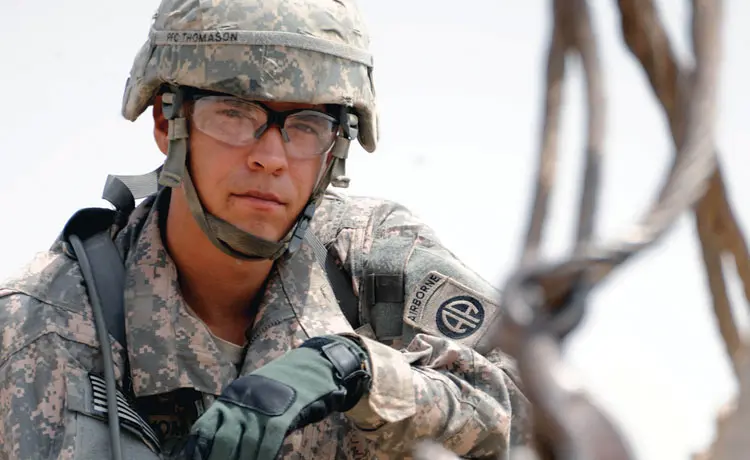Everyone’s felt it – racing heart, clammy hands, quick breathing… Anxiety and panic affect everyone at some point in their lives. And while experiencing some anxiety is a normal human reaction to any stressful situation, excessive recurring anxiety can be a problem – especially for Service members. Excessive anxiety can prevent Service members from functioning at optimal performance levels, which increases risks for military personnel, especially those engaged in combat or dangerous and demanding activities. Leaders can help support their Service members by providing them with the right information, tools and resources to overcome anxiety and panic on- and off-duty.
Stop the Panic
Panic attacks are a common physical reaction to anxiety. Offer the following 9 tips as a useful first step in helping military personnel control their panic attacks:
1. Deep breathing
When you feel the symptoms of a panic attack (racing heart, dizziness, sense of impending doom, chest pains, breathing difficulties) coming on, take 10-20 deep breaths. Breathe in deeply through your nose. Hold the breath for five seconds and then slowly let it out through pursed lips. Breathe slowly, deeply and deliberately.
Panic attacks often end within 15 minutes with properly controlled breathing.
2. Positive self-talk
Keep telling yourself that you are OK. Try to remain calm and rational so that others can help you.
3. Reject negative thoughts
Do not allow yourself to focus on negative thoughts. Replace negative thoughts with positive thoughts. Remember that panic will not kill you
4. Scan from head to toe
Go through a mental checklist to remind yourself that your body is functioning fine and that you will be OK.
5. Think about solutions to the current problem
Clear thinking can help you find reasonable solutions. Slow down your racing thoughts. Think about how you might help yourself.
6. Try to remain calm
Do not try to stand up, move about or run.
7. Avoid tensing your body
If you are in pain, controlled deep breathing is the best instant treatment (see #1).
8. Relax as much as you can
Remember that panic attacks are temporary.
9. Remind yourself that anxiety is a normal reaction to an abnormal situation
A panic attack is not an indication of craziness or weakness. It is an overload of anxiety.
Supporting Service Members
If anxiety lasts longer than a few weeks and interferes with a person’s normal life functions (sleeping, eating, thinking, decision-making, working, relating to others, controlling emotions, etc.), it has probably become a significant problem for them. Support your personnel so they can get the help they need to live well and perform at their best. For more information on various Military Life products available to purchase for your community, browse the Quickseries® library of guides, including Understanding and Controlling Anxiety for Service Members.
